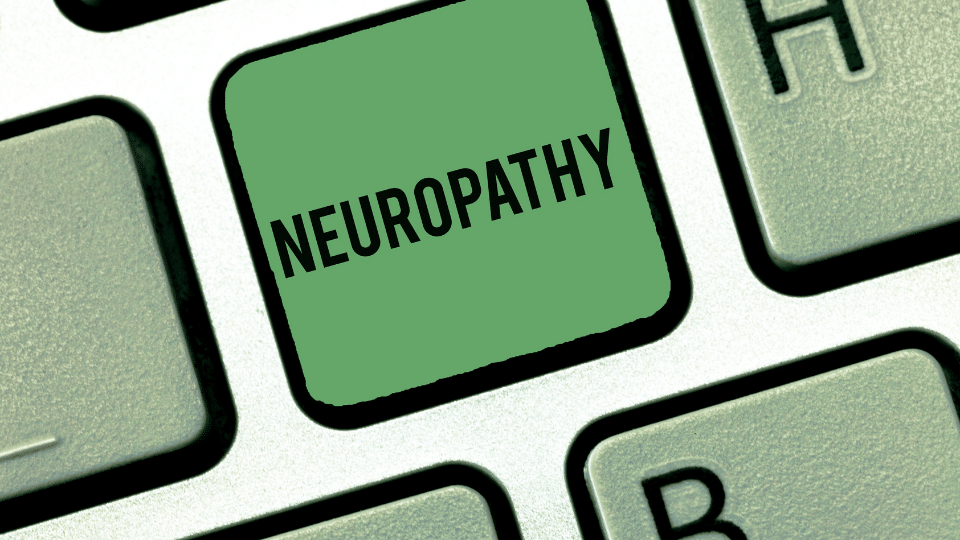When most people hear the word neuropathy, they immediately think of diabetes. And it’s true, diabetes is the most common cause of peripheral neuropathy. But what many don’t realize is that you can develop neuropathy without diabetes.
Peripheral neuropathy simply means there’s been damage to the nerves outside the brain and spinal cord. These nerves control sensation, movement, and automatic body functions like blood pressure and temperature. When they’re damaged, symptoms like tingling, burning, numbness, or sharp pain can appear, often in the feet and legs first.
Below, we’ll explore why neuropathy can happen without diabetes, the most common causes, and when to seek medical care.
What Is Peripheral Neuropathy?
Peripheral neuropathy refers to dysfunction or damage to the peripheral nerves. These nerves act as communication lines between your body and your brain. When they’re injured or inflamed, the signals get distorted, leading to sensations such as:
- Tingling or “pins and needles”
- Burning or stabbing pain
- Numbness or loss of feeling
- Muscle weakness or balance problems
- Increased sensitivity to touch
Symptoms often begin gradually, typically in the toes or feet, and can spread upward over time.
According to the Mayo Clinic, more than 100 types of neuropathies exist, each with its own cause and pattern of symptoms.
Yes, You Can Have Neuropathy Without Diabetes
While diabetic neuropathy is common, it’s not the only type. According to the National Institute of Neurological Disorders and Stroke (NINDS) and the Foundation for Peripheral Neuropathy, there are many non-diabetic causes, some reversible, and some chronic diseases.
Common Non-Diabetic Causes of Neuropathy
Vitamin Deficiencies
Certain vitamins are essential for nerve health, particularly B1 (thiamine), B6, B12, and folate. A lack of these nutrients, often due to poor diet, absorption problems, or chronic alcohol use, can damage the nerves over time.
Alcohol-Related Neuropathy
Excessive alcohol consumption can directly injure nerves and also lead to vitamin deficiencies. According to the Foundation for Peripheral Neuropathy, alcohol-related nerve damage is one of the leading non-diabetic causes of neuropathy.
Autoimmune and Inflammatory Disorders
Diseases like lupus, rheumatoid arthritis, and Guillain-Barré syndrome can trigger the immune system to mistakenly attack healthy nerve tissue, leading to inflammation and pain.
Infections
Certain viral and bacterial infections are known to damage nerves. Examples include Lyme disease, HIV, hepatitis C, and shingles (postherpetic neuralgia).
Medication or Toxin Exposure
Some chemotherapy drugs, antibiotics, and heavy metals (like lead or mercury) can cause what’s known as toxic neuropathy. If you notice new symptoms after starting a medication, it’s important to tell your doctor.
Kidney or Liver Disease
When these organs aren’t functioning properly, toxins can build up in the blood and damage nerves, a condition called uremic neuropathy.
Endocrine and Thyroid Disorders
An underactive thyroid (hypothyroidism) can lead to fluid retention and nerve compression, resulting in pain, tingling, or weakness in the feet.
Hereditary Conditions
Genetic disorders like Charcot–Marie–Tooth disease cause nerve damage that can appear even in childhood or early adulthood.
Idiopathic Neuropathy
In some cases, no specific cause is found. This is called idiopathic neuropathy, and while it can be frustrating, symptom management can still greatly improve quality of life.

How Non-Diabetic Neuropathy Is Diagnosed
Diagnosing neuropathy involves determining whether nerve damage is present and why it’s happening. A podiatrist or neurologist may perform:
- A detailed medical history and exam: Reviewing symptoms, health conditions, and lifestyle factors.
- Blood tests: Check vitamin levels, thyroid function, kidney/liver health, and signs of inflammation or infection.
- Nerve conduction studies (NCS) and electromyography (EMG) evaluate nerve and muscle function.
- Imaging or nerve biopsy: In select cases to confirm small fiber or structural nerve damage.
These tests help your care team create a treatment plan that targets both the symptoms and the root cause.
Treatment Options for Neuropathy without Diabetes
Treatment depends on the cause but often includes a combination of approaches:
Addressing the Underlying Cause
- Correcting vitamin deficiencies through diet or supplements
- Adjusting medications or avoiding toxin exposure
- Managing autoimmune or thyroid disorders
- Treating infections promptly
Symptom Relief
- Prescription nerve pain medications (e.g., gabapentin or duloxetine)
- Topical creams or patches to reduce burning and tingling
- Physical therapy to improve strength and balance
- Orthotics or protective footwear to prevent injury to numb areas
Lifestyle and Home Care
- Maintain good nutrition and hydration
- Limit alcohol and avoid smoking
- Manage chronic health conditions like thyroid or kidney disease
- Inspect your feet daily for cuts or sores if sensation is reduced
When to See a Podiatrist
If you notice tingling, burning, or numbness in your feet or toes, even without diabetes, it’s best to schedule a professional evaluation. Early diagnosis can make a major difference in preventing progression and managing discomfort.
Seek medical attention if you experience:
- Sudden or worsening numbness
- Sharp, shooting pains
- Loss of coordination or balance
- Ulcers, wounds, or infections on your feet
The Bottom Line
Yes — neuropathy can occur without diabetes.
It can stem from vitamin deficiencies, autoimmune disease, toxin exposure, infections, and other metabolic or genetic factors. The key is to identify the underlying cause early and begin targeted treatment before nerve damage becomes permanent.
At Fall Creek Foot & Ankle, our podiatry team is experienced in diagnosing and managing both diabetic and non-diabetic neuropathies. Through careful testing and customized care, we help patients protect their nerve health and restore comfort in every step.
If you’re experiencing foot tingling, burning, or numbness, don’t wait. Schedule an appointment today to find relief and protect your long-term nerve health.
